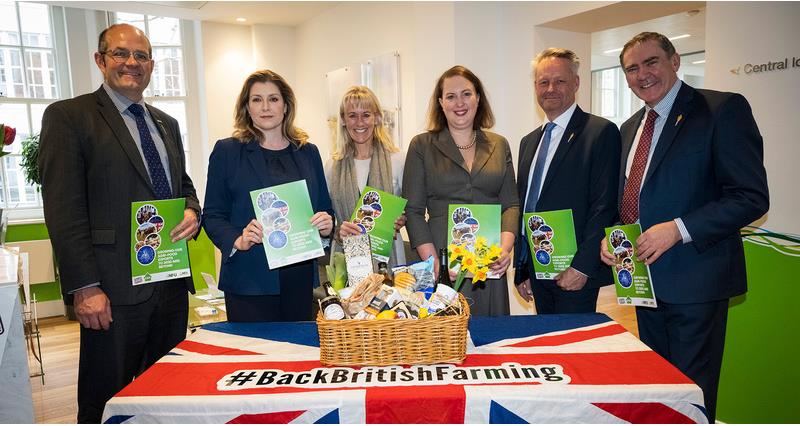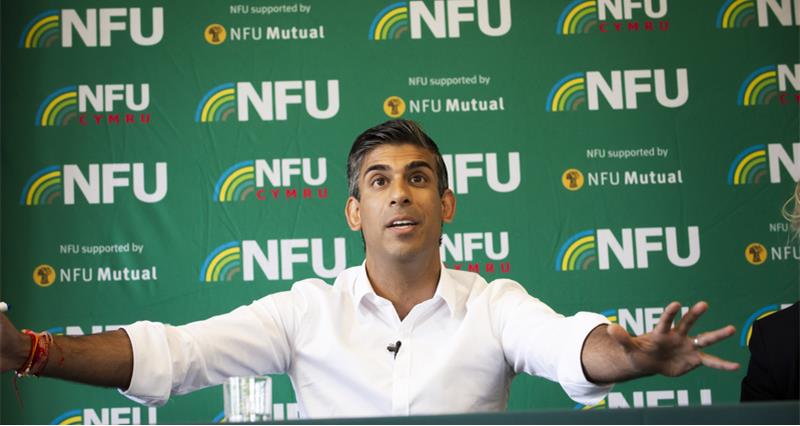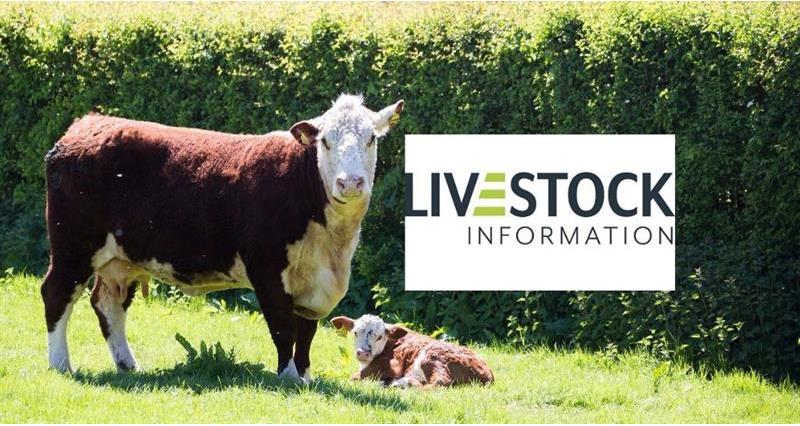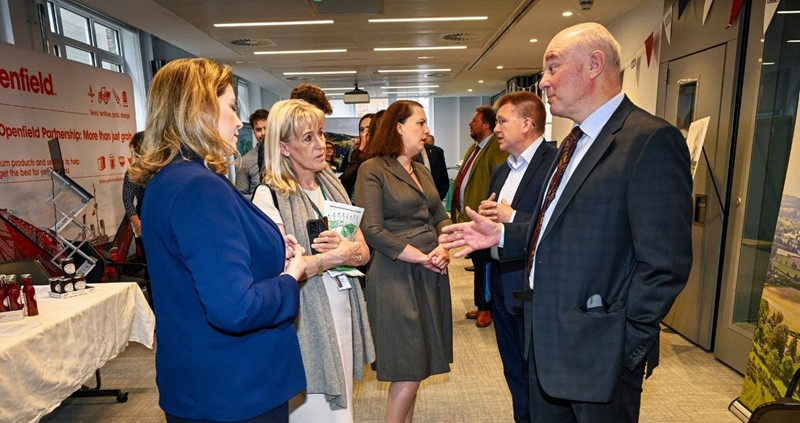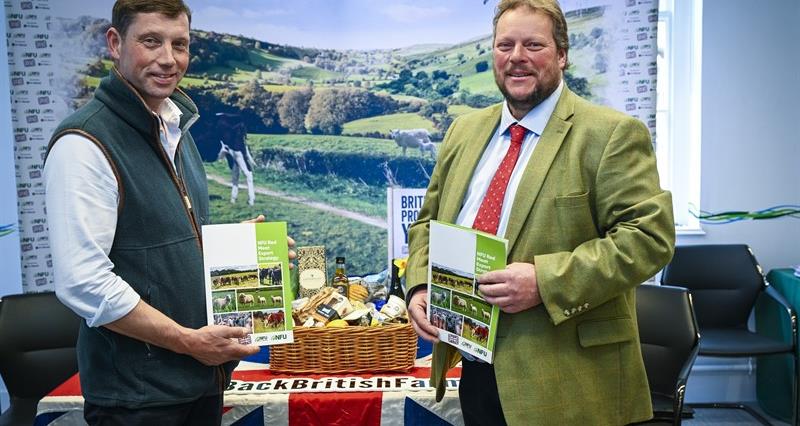Progress made
As part of the strategy, the NFU called for the establishment of a Food and Drink Export Council, which would work in partnership with the industry to promote exports.
The council is now operational, with representatives from the NFU participating across a number of workstreams, including a group looking at the industry’s collective capabilities for exporting and a group to determine how best to report and resolve barriers to trade.
Find out more about Food and Drink Export Council's first meeting: Food & Drink Export Council hosts first meeting
The government also announced funding for a further five new Agri-food attachés which will be based in the UK's overseas embassies – another key element of our export strategy. This is in addition to the eight which were appointed over the past 12 months, bringing the total number to 16.
At the Farm to Fork Summit at Downing Street in May, the Prime Minister also announced additional funding of £2 million to strengthen our exporters presence at trade shows and a further £1 million earmarked especially for dairy exports.
The additional funding dairy exports has been particularly welcomed, especially as the dairy industry is proactively organising itself through an industry led Dairy Export task force co-ordinated by the NFU.
Growing our exports
Trade patterns have been disrupted in recent years due to Covid-19, Brexit and the war in Ukraine. However, in comparison to the previous two years, 2022 was a year of significant growth. We are now starting to see growth beyond figures from 2019.
In 2022, agri-food exports grew by more than 15% and in the first quarter of 2023, exports are up a further 12% year on year, which includes a 23% increase in value of dairy exports and a 38% increase in cereal exports.
Implementing the NFU's 10-point plan
In our export strategy, we identified a 10-point plan that will form the building blocks to maximise our export success. We have seen progress across each of those points and continue to engage with government and industry partners to deliver outcomes.
1. Understanding our strengths
We expect the FDEC (Food and Drink Export Council) will undertake a SWOT analysis to establish where the UK’s agri-food strengths lie and match this up with target markets.
2. Identifying the best overseas markets for success
The work of the FDEC will be well assisted by AHDB’s horizon report which establishes key markets for sectors covered by the levy.
3. Unlocking our target markets
Defra appointed eight new Agri-food attachés bringing the total number in post to 11. The NFU hosted a ‘walk the dairy supply chain’ event with the attachés in January and will continue to support them whilst they are in post.
Read more: New UK agri-food attachés ‘walk the dairy supply chain'
Funding for a further five Agri-food attachés was announced by the Prime Minster during the No.10 Food Summit.
In June 2022, the DIT (Department for International Trade) announced a ‘Bonfire of the Barriers to Trade’ to unlock key target markets such as removing restrictions on UK beef to South Korea, opening up markets worth an estimated £2.5bn.
The NFU look forward to progress on this and is working as part of the FDEC to ensure there is strong engagement from industry in prioritising and resolving the barriers.
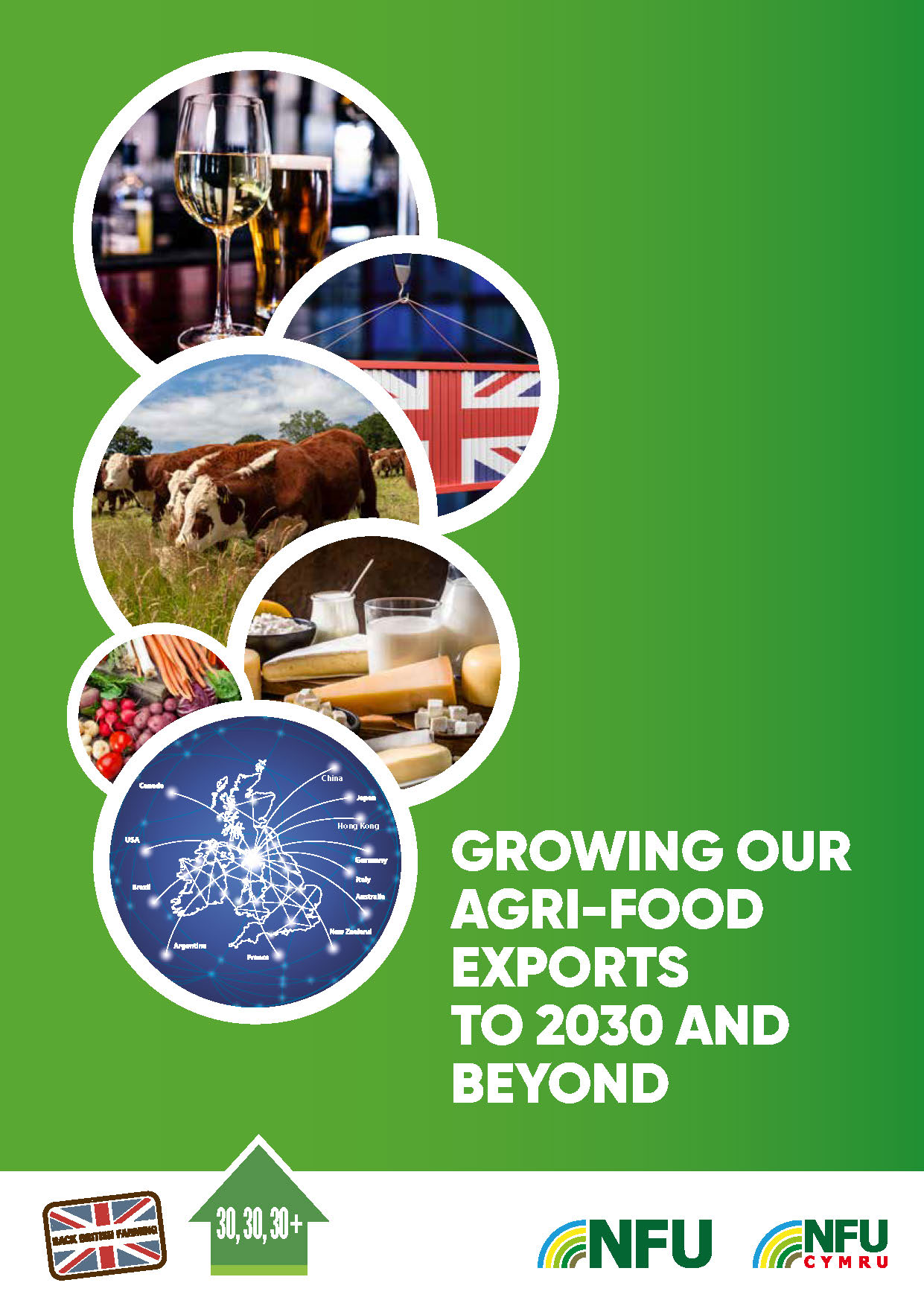
Growing our agri-food exports to 2030 and beyond
The NFU has outlined its export strategy to grow the UK’s agri-food exports by 30% by 2030, bringing the total value of UK agri-food exports to over £30 billion. The new ’30, 30, 30+’ ambition is designed to be achieved in partnership with government and should be a driving force to showcase the fantastic British brand and put British food on plates across the world.
In October, the US opened it's markets to UK lamb the first time in 20 years. This market expected to be worth £37 million in first 5 years of trade.
NFU members can log in to read: British lamb exported to US for first time in decades
In December, the DIT announced the removal of rules that previously banned the export of certain pork products to South Korea. This is a deal that is expected to be worth up to £1 million over the next five years.
4. Investing in technical expertise at home and abroad
UK agri-food producers already invest around £6.6 million via AHDB levy funds to grow our exports. The NFU continue to call for matched funding from the government for ADHB's export promotional activities, as as outlined in the AHDB sector plans.
In June 2022, the NFU hosted a ‘moving meat around the world’ workshop with Defra and DIT to help better understand global supply chains.
5. Domestic innovation and investment to improve export capacity
The FDEC will review the UK’s existing capacity and ways in which we can boost our capability to export.
6. Ensure domestic infrastructure supports international trade
The NFU continues to engage in the development of the BTOM (Border Target Operating Model), including the roll out of simplified and e-certificates to help facilitate trade and the establishment of sufficient Border Control Posts to ensure two-way trade with the continent can be maximised.
The NFU continues to work on policy priorities such as the delivery of secure, high-quality internet to facilitate the movement of information. We continue to support the digital grain passport and the livestock information service to ensure ease of transmitting information. We continue to support UK halal certification to increase our catalogue of certifiers abroad and build understanding and recognition of the Demonstration of Life protocol.
Get a deeper dive on the NFU's work around international trade:
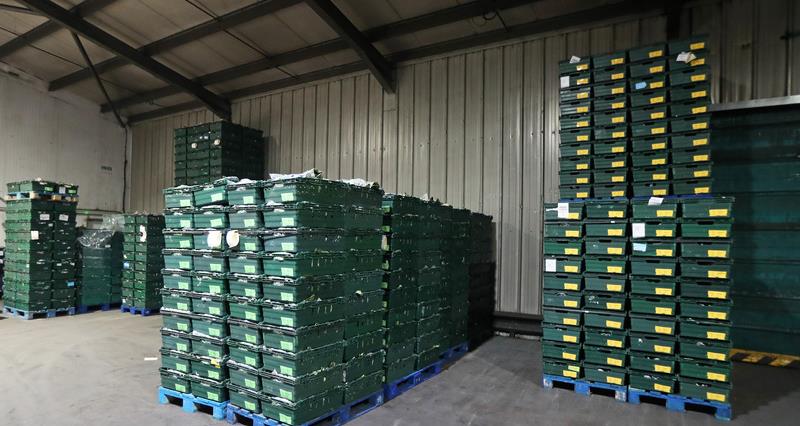
7. Domestic support for exporters
The NFU welcomes the work of AHDB in its export support, the government’s Export Support Service and UK Export Finance.
We also welcome the announcement at the Farm to Fork summit of an additional £1 million for dairy export support and £2 million for agri-foods more widely.
8. Creating a trade information one-stop-shop for our agri-food exports
The FDEC has a range of stakeholders across the industry and is working to consider how this and other approaches can improve access to information for potential exporters.
9. Marketing and promotion
The NFU continues to call for a strategic approach to marketing activities which build on government-private partnership and support SME’s who are looking to export.
10. Strategic co-ordination and ownership
The FDEC will be the main vehicle through which many of the other export strategy aims will be achieved. The council is compromised by Defra and DBT (formerly DIT) representatives, devolved administrations and other industry representatives.
The NFU's main representative on the council is Nick von Westenholz, Director of Trade and Business Strategy.
